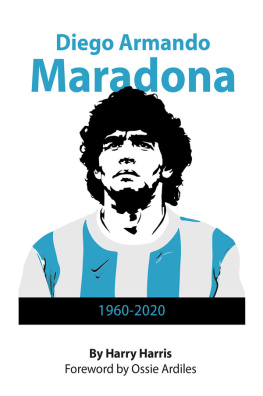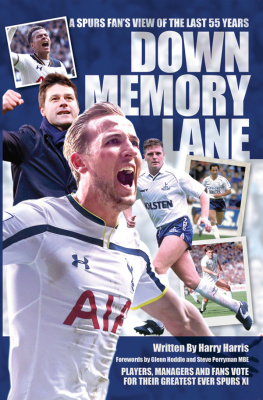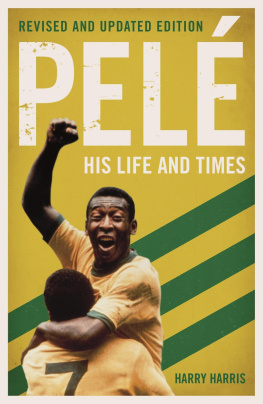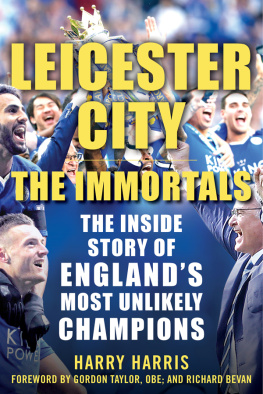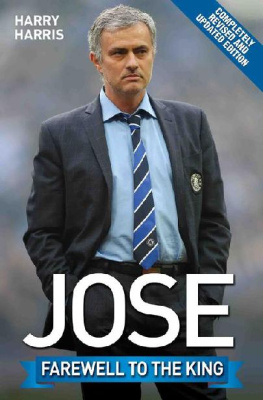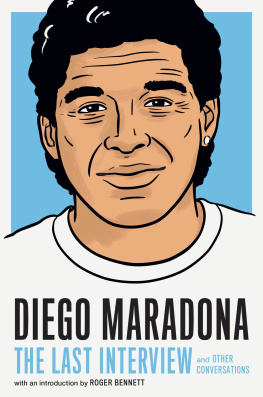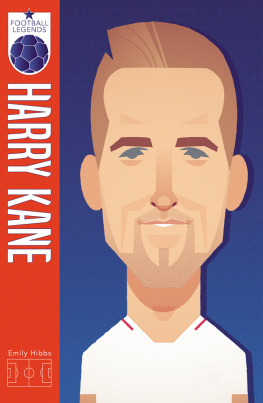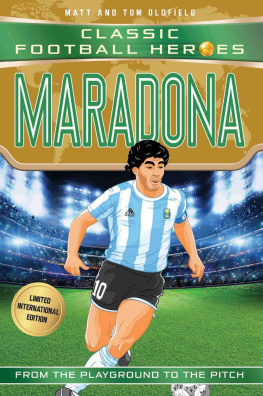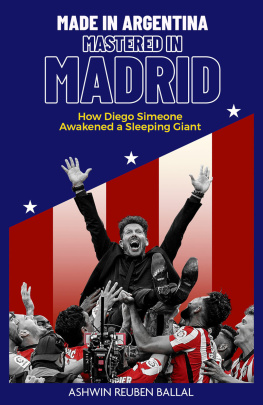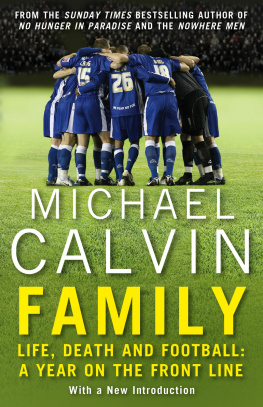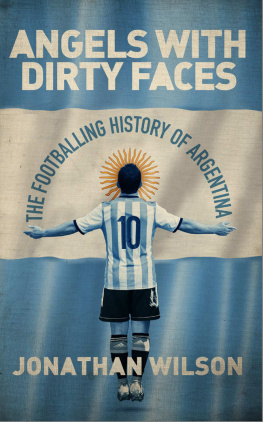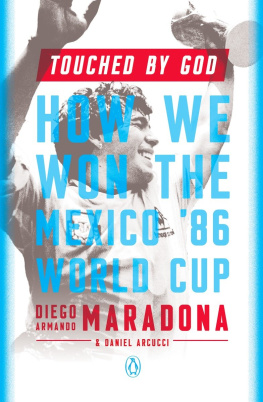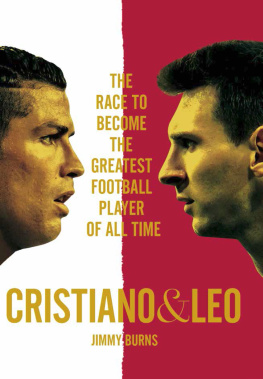Contents
Guide
CONTENTS
ABOUT THE AUTHOR
F ew journalists have ever enjoyed such a remarkable one-to-one interview with Diego Maradona in his life time. Harry Harris was there.
He was there in the Azteca Stadium to watch Diego Maradona score his wonder goal four minutes after the infamous Hand of God goal. He interviewed the late Bobby Robson minutes after the final whistle. He can also count Ossie Ardiles among his closest confidantes in football, and has interviewed the man who knows Diego best since the premature and tragic death at the age of 60. Most remarkably, he shared a car ride to the Lane with Ossie and Diego in one of the most unusual personal interviews Maradona has ever given any journalist, especially one from England.
Harry was also there for the World Cup in the United States in 1994 and raced across the country to be at the Dallas press conference when he witnessed more global media than he had ever seen in his 40-year career as one of the UKs most prominent journalists, after Maradonas positive drug test, when he was kicked out of the tournament.
Harry has written as astonishing 80 books, including biographies of superstars such as Pele, Ruud Gullit, George Best, Jurgen Klinsmann, Glenn Hoddle, Franco Zola and Wayne Rooney. Now he has focused on the remarkable life and times of Diego Maradona. Harry Harris (left), with Diego Maradona and his first wife Claudia Villafane, and Ossie Ardiles - 1986
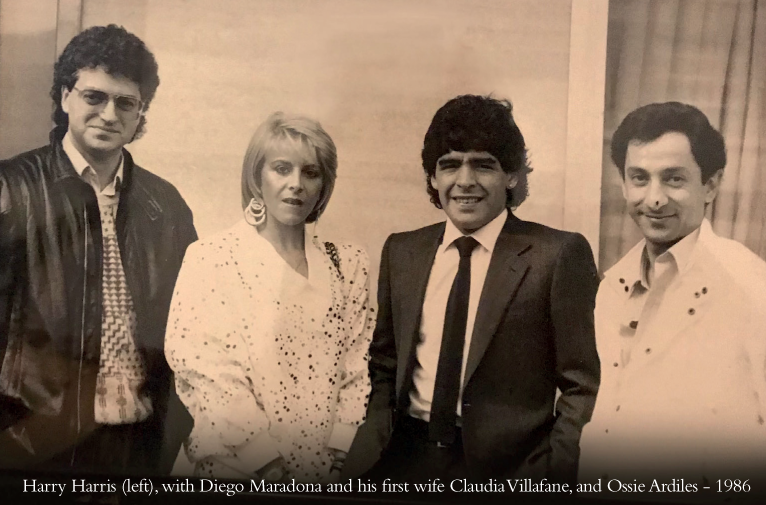
A TRIBUTE BY OSSIE ARDILES
A ll our conversations would finish in the same way He would say it is very beautiful to be Maradona, but it is not easy to be Maradona.
First of all, it was a big, big shock when I heard the news of his passing. In many ways, it was news I had been expecting at some point but when it happened it was an incredible shock, whether I was prepared for it or not. A week earlier Ray Clemence passed away, and then Diego. It was a very sad time.
For me, Diego was one of the three I would always pick out as the very best in the history of the game. There are, of course, more players I could mention, but there are three when I ever mention the all-time greats Pele, Maradona, and Messi. Of those three, Diego is the best.
Like Pel, Diego played at a time when it was much more difficult to play than now. Now nobody is allowed to touch you, but when Diego played there was always the chance of being injured, and it was always a question of when you would be hurt and hurt by what I would call the bad boys, who were out to catch him.
It might have been incredibly difficult at the time he played, but he was extraordinarily skilful, tremendously gifted, an unbelievable talent. What would he be worth now? Even at that time he was the most expensive transfer of all time, and he would be the most expensive transfer now.
He will be remembered as a genius in football. You can see the extraordinary amount of interest that he generates. People like Ronaldo, or people like Messi, they couldnt even dream of having this kind of admiration. That was the Maradona phenomenon -all the time.
Diego came from Villa Fiorito on the outskirts of Buenos Aires. Its not quite a shanty town but its very close to that. It was a poor background. In Argentinian football we have this myth about El Pibe or the boy. It is the little, skilful boy footballer who succeeds against all the odds and makes it big, that is the legend behind El Pibe. Its part of our culture. And Diego fulfilled that role absolutely. From where he was born, there was a sense of being against the law. It was a world where the police were the bad guys and the criminals were heroes, because you had to survive however you could. This is what Diego was. He had to survive and he would be prepared to do anything to do that. And survival for him was to win the game. And he would do anything to do it. Despite his background, money didnt really interest him. To be honest, he didnt need it. Wherever he went, everything was paid for him. Wherever he went they gave him a car or a watch... he would have one hundred watches at home, all better than the other. He never needed anything. He didnt carry cash. What for? But there were many people in his life who exploited that and cheated him but he never forgot his background and he felt at peace with the fans and poor people. He was a hero for them and they identified with them. Presidents and kings would invite him and he would refuse. Or he would go and keep them waiting, arriving one hour late. He was always fighting with powers that be, presidents of Argentina, the Pope, presidents of the USA, the FIFA president and people identified with him. Ive seen this in India, in Jordan, in Japan. And in Latin America he was hugely popular because of what he represented. Only our former president, Juan Peron and his wife Eva Peron Evita have come close to his popularity with the poor. People wouldnt really appreciate the intelligence of Diego unless you shared a dressing room with him. He was incredibly sharp with the banter. There was no point getting into a verbal contest with him. You couldnt get the last word, he would always answer you back in a way that meant he won the argument. He was a graduate of the university of the street.
He always wanted to know things, especially about Europe. In Argentina at the time, they looked down on European football. The general feeling was theyre strong, they run like mad but they cant play but he wanted to know about Europe and at this time he was about to move to Barcelona, so he would ask me. He was humble despite being Diego. When we watched football on the TV in camp and someone made a mistake, he never joined in the laughter or mockery and he had an extraordinary respect for the guys of the 1978 team. He once picked his all-time Argentinian XI and six were from the 1978 team [Ardiles was one of them].
My first memory of him was some time before this. Back in 1975, when we were playing with the national side at Boca Juniors stadium, La Bombonera, they would get a child to entertain the crowd before the game. This kid was at Argentinos Juniors, but he hadnt made his debut. He was 14 or 15 years old but he was already a minor celebrity, juggling the ball before the games. And, to be honest, he was fantastic. We were national team players but we would go out to see him perform. He would be walking around the stadium with the ball, doing these extraordinary tricks as he talked to people and waved to the crowd. We were saying to each other: How can he even do this? That was how I met my lifelong friend, Diego Maradona. For the last few days I have been thinking about all the memories I have of him and thinking back to that time when he was a child. Within a year, we would meet him again at training for the national team. He was 15 or 16 by then. Cesar Menotti, our manager, would always bring a couple of young players into the sessions to make up the numbers, so that we could play 11 a side. The day came when Diego showed up, very humble, a bit nervous. To be honest, he was in awe of us. He was still a child, already a little bit stocky. You can imagine how sceptical we were. Of course, as soon as he played, we could see how good he was. He was a sensation. But you know footballers. They can be very cynical. We had seen so many young players who were extremely skilful but never made it. He was more skilful than any other but there was still this doubt. And we were saying: Well, of course, hes very good. But look at him! Hes too small! He will never make it. Were talking about playing in the Argentinian first team. This wasnt football for creative players. It was football for the baddies. Within a year, he had made his debut for the national team at the age of 16, when he came on for Leopoldo Luque against Hungary in 1977. And after that he was one of us.

